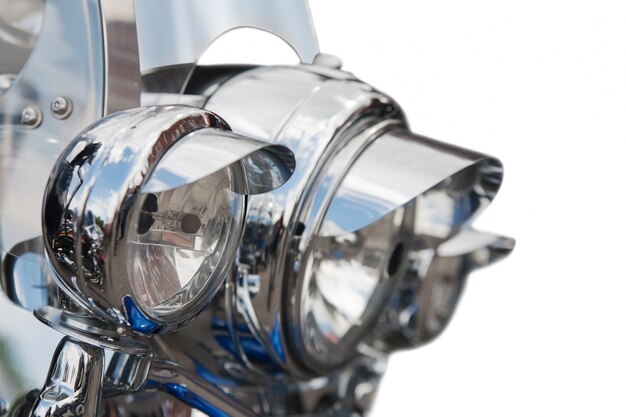
Sponsored article
Have you ever wondered how your car maintains that perfect balance between power and fuel efficiency? Much of the credit goes to lambda sensors, those small yet vital components nestled within your vehicle’s exhaust system. By continuously measuring the oxygen levels in exhaust gases, lambda sensors ensure that your engine runs at its best. This delicate balance keeps your vehicle economical to run, environmentally friendly, and performing at its peak. Explore how these sensors impact your driving experience in surprising ways.
Understanding lambda sensors is crucial for grasping their impact on car performance. Commonly referred to as oxygen sensors, these components play a vital role in a car’s exhaust system. Installed in the exhaust manifold, a lambda sensor measures the amount of oxygen present in the exhaust gases. This measurement is essential as it helps determine the air-fuel ratio in the engine, ensuring that the engine runs efficiently and reduces harmful emissions. Maintaining an optimal air-fuel ratio is not only pivotal for car performance but also for fuel efficiency and longevity of the engine. By providing real-time data to the engine control unit (ECU), lambda sensors enable precise adjustments, contributing to a smooth and powerful driving experience.
Over time, a malfunctioning oxygen sensor can lead to poor fuel economy, increased emissions, and sluggish car performance. This is why regular inspection and timely replacement of lambda sensors are important for sustaining vehicle health and performance. For quality OEM exhaust parts, including reliable lambda sensors for various car brands such as BMW, Audi, and Mercedes, visit https://auto724.us/exhaust. Here, you can find a wide selection of parts that cater to specific vehicle needs, helping you maintain the efficiency and cleanliness of your car’s exhaust system.
The impact of lambda sensors on fuel efficiency is markedly significant, as they play a crucial role in monitoring and adjusting the air-fuel mixture to maintain optimal combustion. Lambda sensors continuously measure the oxygen levels in the exhaust and send this data to the engine control unit (ECU), which subsequently adjusts the fuel injection process. This ensures that your engine operates within the ideal stoichiometric ratio, commonly known as the balance between air and fuel. By achieving this balance, cars can maximize fuel economy, translating into fewer trips to the gas station and reduced fuel costs. Additionally, ensuring the correct air-fuel mixture extends the life of the engine and reduces the risk of costly repairs.
Beyond enhancing fuel efficiency, lambda sensor impacts are profound in minimizing harmful emissions. By ensuring that combustion occurs as efficiently as possible, lambda sensors effectively reduce the output of pollutants such as carbon monoxide, hydrocarbons, and nitrogen oxides. Operating within the ideal air-fuel mixture range results in a cleaner exhaust, which is both environmentally responsible and compliant with regulatory emissions standards. The dual benefits of investing in a well-functioning lambda sensor are clear:
Thus, maintaining an efficient lambda sensor is essential for both economic and environmental sustainability.
A faulty lambda sensor can significantly impact your car’s performance, with various diagnostic signs indicating its failure. One of the most common symptoms is increased fuel consumption. A malfunctioning lambda sensor sends incorrect data to the engine control unit, leading to an imbalanced air-fuel mixture. This imbalance forces the engine to burn more fuel than necessary, reducing fuel efficiency. Another clear indicator of a failing sensor is the illumination of the check engine light on your dashboard, which can be triggered by the emission control system detecting irregularities due to the sensor’s faulty readings. Such warning lights shouldn’t be ignored as they can signal deeper car performance issues.
Further signs of a faulty lambda sensor include rough engine idling, a noticeable decrease in engine performance, and a failed emissions test. These performance issues arise because the sensor’s erroneous data causes incomplete combustion, potentially damaging the catalytic converter over time. To prevent exacerbating the damage, it is crucial to address sensor replacement promptly. Keeping the lambda sensor in good working condition ensures the engine runs smoothly, maintains optimal fuel efficiency, and reduces harmful emissions, highlighting its critical role in automotive health.